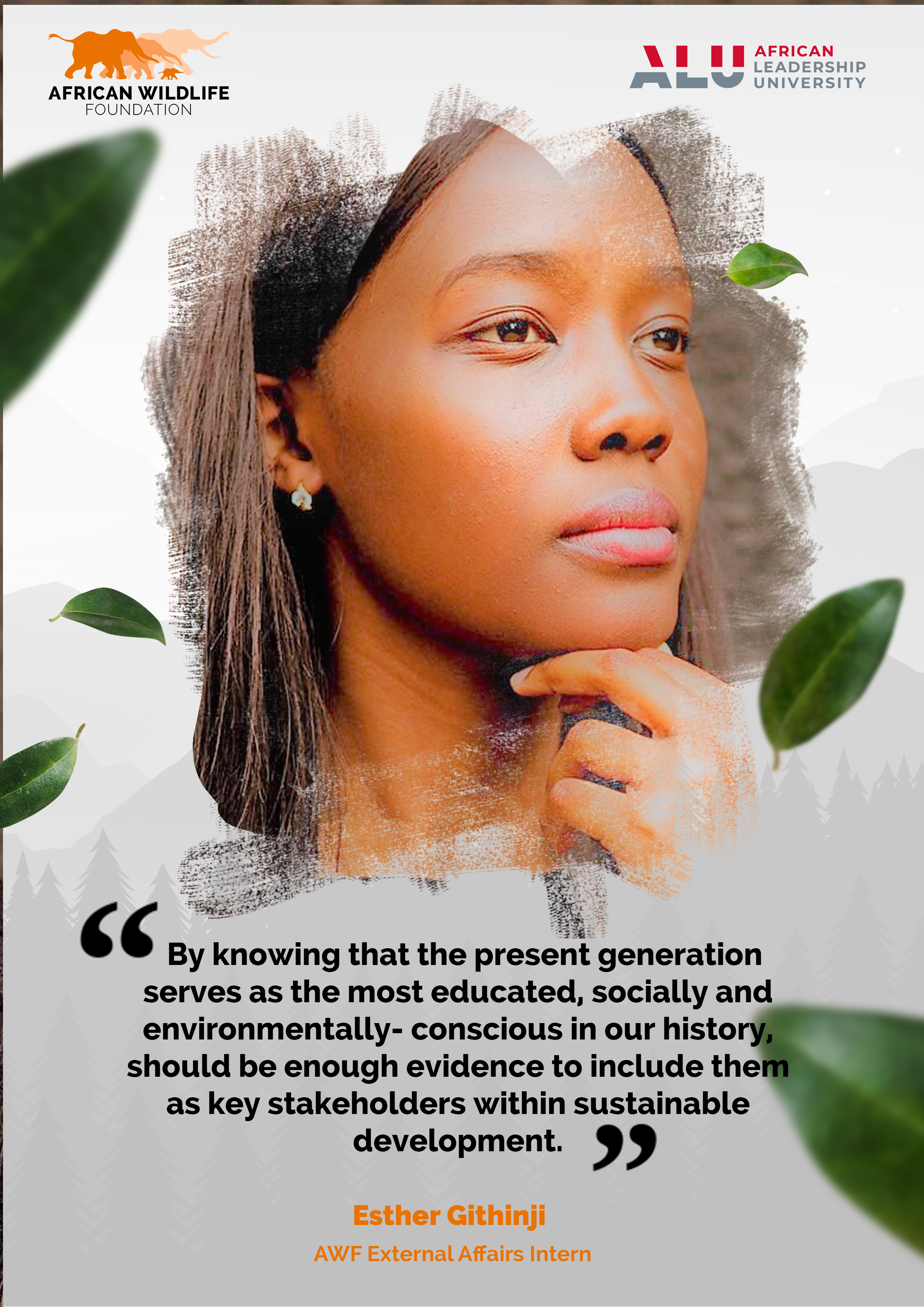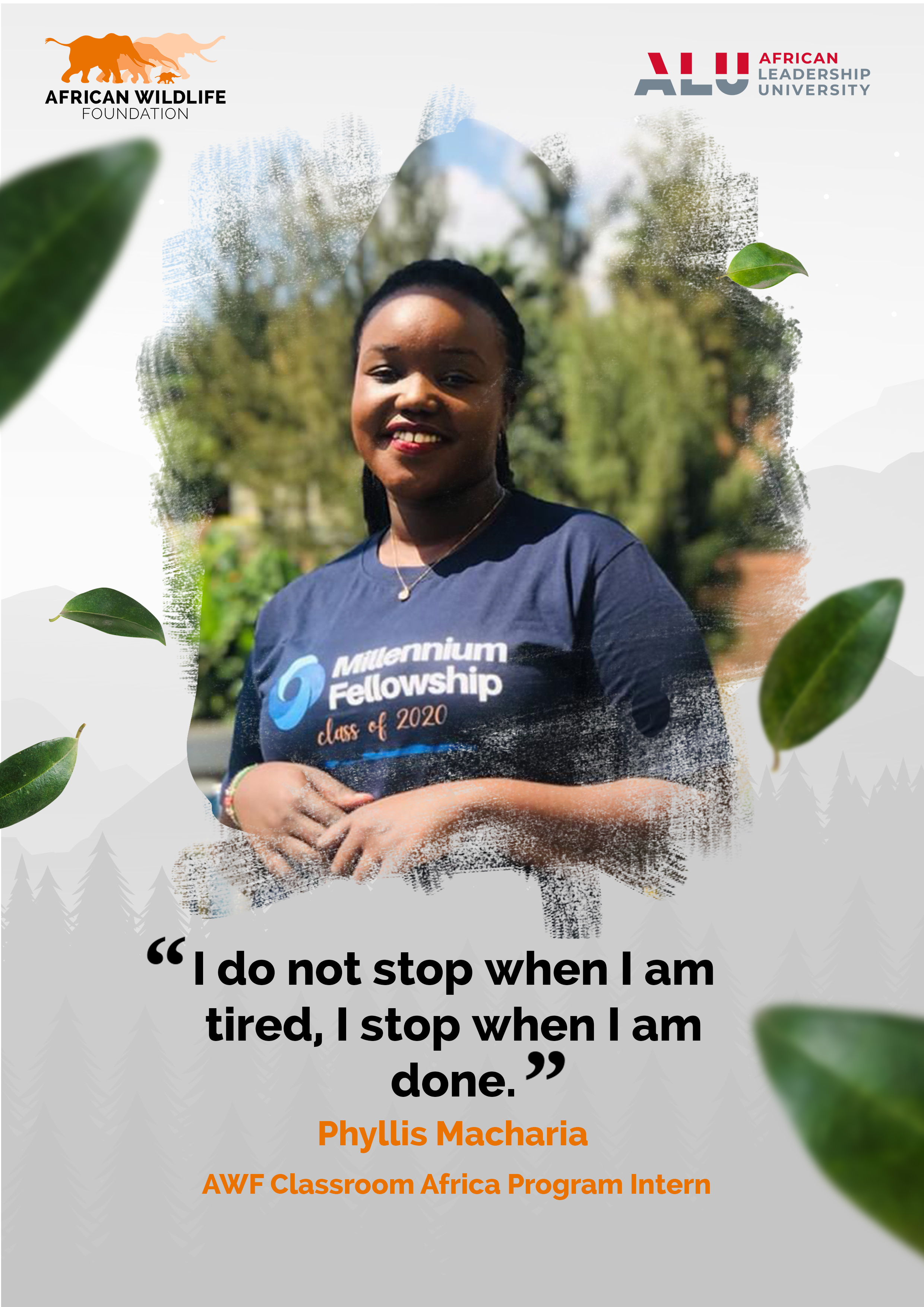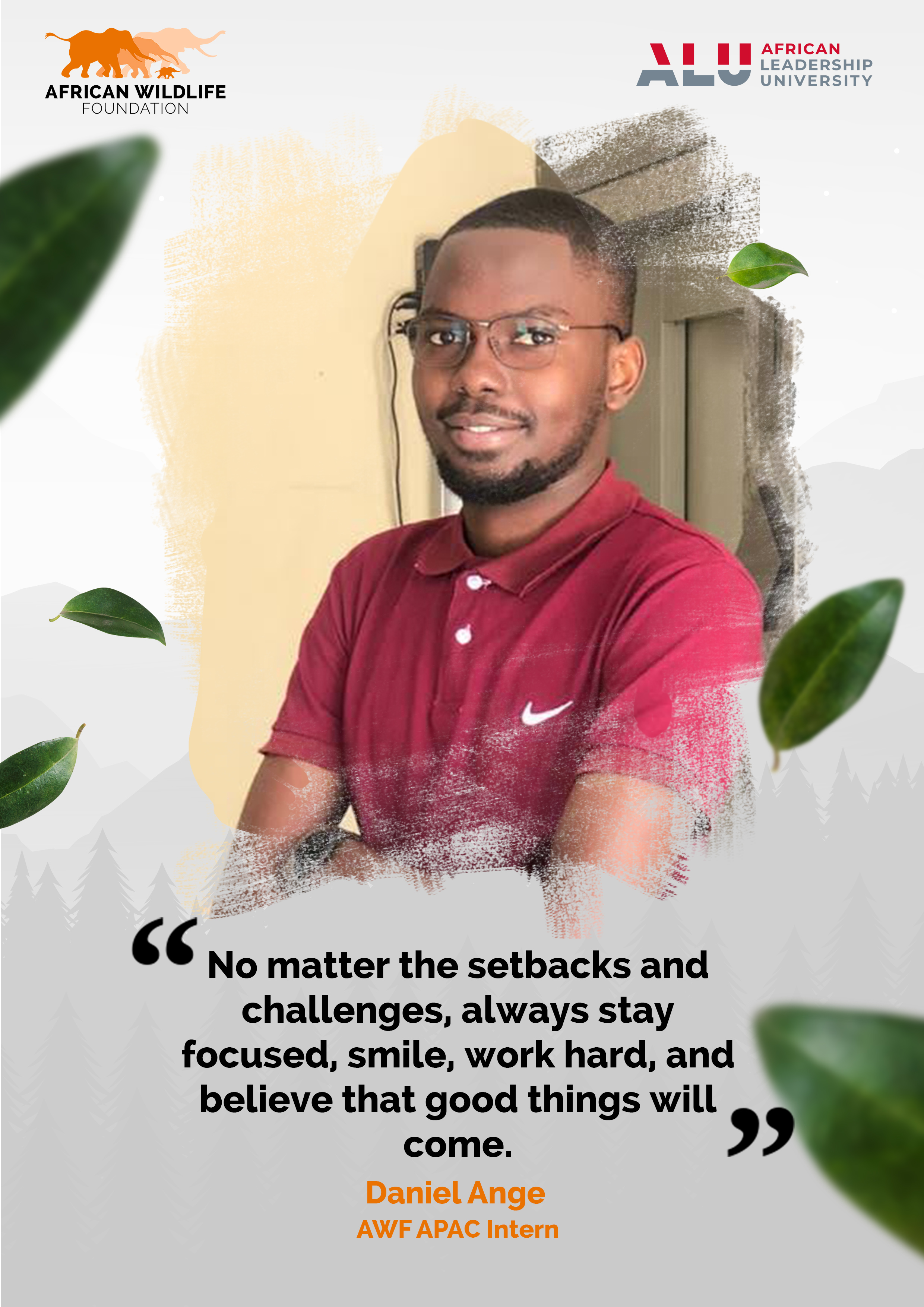Young African conservation voices advocating for change

“We are part of an intergenerational mission, and our success relies on our ability to equip upcoming generations to take on the baton.”
Simangele Mbali Msweli,
AWF Youth Program Senior Manager
As we celebrate International Youth Day, African Wildlife Foundation takes stock of the AWF Youth Strategy. This strategy encapsulates different levels of engagement like the ALU-AWF Internship Program, which was made possible by our partnership with the African Leadership University School of Wildlife Conservation.
This August, the first cohort of interns successfully completed their 3-month placement within different departments at AWF. The assigned teams were directly in tandem with their undergraduate courses and career goals. The wealth of knowledge that these bright individuals have imparted within the various teams was evident as their supervisors shared their sentiments during the virtual closing ceremony.
“The different perspectives that you bring to the table are priceless, and we are fortunate to have learned so much from each of you individually and as a team. Seeing the hunger and the passion that you have encourages us that we are doing something right and that the hope is not dead,” Fred Kwame Kumah, Vice President of External Affairs, emphasized.
Esther Githinji, AWF External Affairs Intern 2021

Esther is one of the stellar interns that was placed with the External Affairs team. She received multiple opportunities to showcase her diverse skills, highlighting that a key lesson she took away revolved around the shared values on the road towards sustainable development. Currently undertaking a bachelor’s degree in International Business and Trade (Honours), her passion for global business shines through in her discussion of current economic models and her analysis of the critical domino effect that has contributed to the degradation of the planet.
“I was excited to be a part of a largely diverse and vibrant team that is actively working towards sustainable development across multiple channels,” an elated Esther added. “The breadth and impact of the work done by AWF led me to know that I would be working on real-life innovative projects that would equip me with relevant skills in the conservation sector.”
Additionally, she commended her entire team, confirming that the program was indeed well-structured and coordinated, with great support for personal and professional growth. She anticipates pursuing a career in sustainable development, and one of her growing aspirations is to continue sharing her innovative ideas to restore nature before it is too late.

Phyllis Macharia, AWF Classroom Africa Intern 2021
Phyllis, an International Business and Trade student at the African Leadership University based in Rwanda, shared her zeal for working directly with communities, particularly with women. She perceives business skills as a tool to positively change and impact the lives of women, who are the pinnacle of most societies in Africa. She emphasized the need to teach communities how to create more sustainable models of economic development to alleviate poverty.
“Interning under the Classroom Africa program taught me a lot about the project management process and the life cycle of a partnership from inception to completion,” said Phyllis. “I had the opportunity to interact with the projects and their managers, and this experience fueled me further towards my career goals in community development.”
Phyllis further advised her fellow peers to embrace their unique paths to success, warning that they should compete with their inner selves rather than compare their successes or failures with others. Her passion to help others elevate and improve can be seen in how she solves problems and how she consistently strives to celebrate the team’s wins — however small they may be. Her supervisor, Paul Kessery, Classroom Africa Senior Manager, urged her to continue nurturing this great virtue.
Djonrewang Tabouli Daniel Ange, AWF-APAC Intern 2021

The West African region was well-represented in this year’s cohort, with Daniel from Cameroon joining the first-ever Africa Protected Areas Congress (APAC) administration team. Currently in his final year as a conservation scholar working toward a bachelor’s degree in Global Challenges (Honors), he mapped out how he came into the conservation space.
Expanding on why he chose this course, Daniel added, “I come from a region in Cameroon that is environmentally degraded, continuously suffering from deforestation and desertification.”
With the great ambition of one day being the Secretary General of the United Nations, he offers his advice to other young people. Aspiring conservationists should be patient and take time to immerse themselves in different sectors, honing a coherent array of skills to impart change.
As they successfully completed the program, the interns emphasized the need to incorporate more fieldwork into the program. The designers of the next cohort, set to start in March 2022, hope that the world will open up to allow more practical field activities for a unique and more engaging experience.